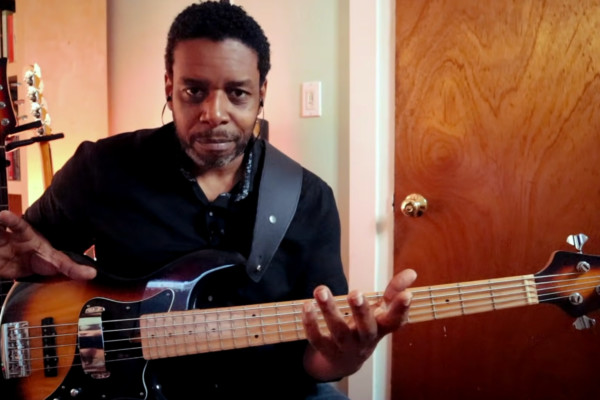The Lightbulb Moment: You Make It Look Easy

“Are you ready for bed?”
“Yes, mom.”
“Did you pick out a book to read?”
“Yes!”
“Did you brush your teeth?”
“Ye-es” (with a slightly sarcastic tone).
Twenty-odd years later and I’m still brushing my teeth, as I’m likely to do for another twenty years, and hopefully another twenty after that. Needless to say, I’m well practiced in the art of dental hygiene. I’m pretty sure I could do it with my eyes closed, while standing on one leg, with any kind of toothbrush. Not to brag, but I’m pretty good at it.
Brushing your teeth is one of those activities that you simply don’t have to think much about… in fact, you probably spend more time thinking about other things while brushing your teeth than actually thinking about brushing your teeth. It’s a familiar, repetitive motion that you’ve done a thousand times. It’s something that’s easy, something that you’ve perfected.
If playing bass were as easy as brushing your teeth, everyone would do it. It takes far more practice, concentration, and knowledge to play bass. The three year old me may disagree, but I would point out that the learning curve is ever so slightly different. The fact is, the more you do something, the more natural it becomes.
Most of us who spend hours in the “shed” have learned this. Picking up the bass and playing the major scale can go from being a difficult and challenging exercise to something that becomes simple and automatic. That shift doesn’t happen all at once… it may take hours, days, and even years to acquire the dexterity and muscle memory necessary to make the major scale, or perhaps your favorite song, seem like a breeze.
Think back to your first attempt at playing a scale. Most likely, you began with learning the notes or memorizing a pattern C, D, E, F… 3rd fret on A, 5th fret on 5, 2nd fret on D, etc. You couldn’t help but look at your fingers, analyzing their proximity to the frets and hoping that you weren’t playing any wrong notes. After a few attempts and many fumbles, you finally play it correctly. And then you do it two times in a row, then three, four, and five. The next day, you pick up your bass and do it again, fumble, and finally succeed. It gets easier and easier the more you do it. Fast forward a few years and you no longer have to think about it. You can play that scale with your eyes closed, anywhere on the neck, at almost any tempo.
While we all end up referencing the major scale at some point or another, it would be fairly unlikely for the bandleader to suddenly demand that you “play the major scale.” Instead, we get hired to play songs, to improvise, or to perfectly execute a part. Most importantly, we get hired to sound and look like we play bass. Our job is not just to play the right notes to a song, but to make it seem like we’ve played the song a thousand times. We need to make it look easy.
As a performer, it’s important to realize that people are watching you play as much as they are listening. Whether you play out three times a week, three times a month, or three times a year, you must convince the audience that you’re the one meant to be on stage. Equate it to watching any professional excel at performing their job. A seasoned restaurant server can answer menu questions at the drop of a hat and gracefully navigate the dining room during the Saturday evening rush. A bank teller can complete a transaction and provide you with your account balance before you even ask for it. A hockey player can jump onto the ice and receive a pass within seconds. These actions have been performed thousands of times, making them seem as natural as can be.
Every time we pick up our instrument, the ease with which we play reflects the effectiveness of our practice. The hours we spend playing exercises and learning songs are like secrets hidden deep beneath our fingers. People won’t think of us play scales or “Giant Steps” when we’re on stage playing “Honky Tonk Woman,” but that’s because we’ve learned to play it without having to think much about it. We know the song, we know our instrument, and we make it look as easy as brushing our teeth.
Ryan Madora is a professional bass player, author, and educator living in Nashville, TN. In addition to touring and session work, she teaches private lessons and masterclasses to students of all levels. Visit her website to learn more!



